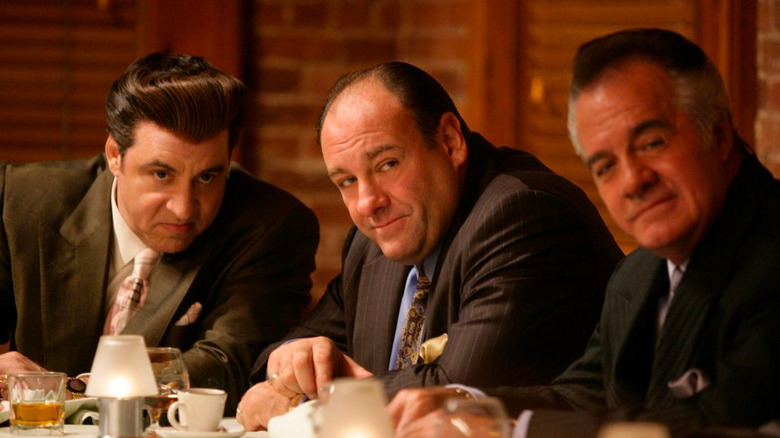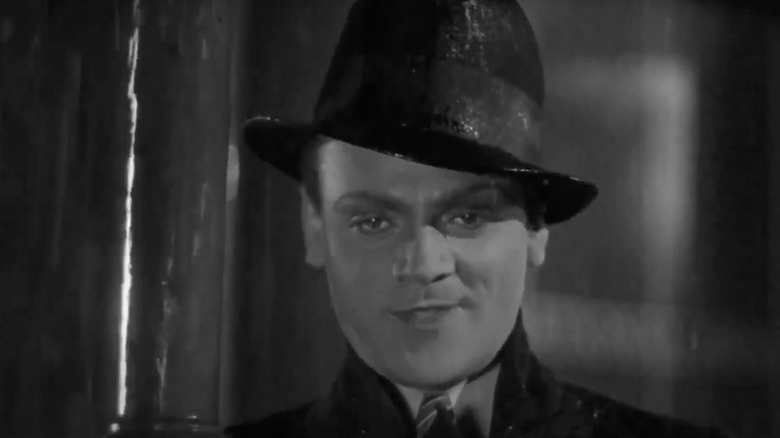David Chase's Memory Was A 'Miracle' Behind The Scenes Of The Sopranos
For those who like some reading with their gabagool, "Woke Up This Morning: The Definitive Oral History of The Sopranos" provides a comprehensive collection of memories and insights from the cast and crew of one of the greatest TV drama series of all time. The book was inspired by the robust success of their definitive and thorough re-visit podcast "Talking Sopranos," the groundbreaking HBO series' stars Michael Imperioli (who plays Christopher Moltisanti) and Steve Schirripa (Bobby Baccalieri) and brings incisive and often surprising behind-the-scenes history of the show's 86 episodes. Trending often in the HBO streaming app, "The Sopranos" remains one of the most binged TV shows fifteen years after its final episode aired in June of 2007.
In the book, casting director Georgianne Walken remembers how mesmerized she was by the incredible memory of showrunner David Chase, who incorporated his lifelong fascination with the mafia into the show's observation of an Italian-American mobster, Tony Soprano (James Gandolfini), in Northern New Jersey. Walken recalls:
"David was extremely thoughtful. This was something that was ingrained in his DNA. The miracle about David is that he remembered everything about his childhood. Everything. He transferred it into "The Sopranos." He remembered the names of streets. He remembered stores. He remembered street corners where things would go on. The man has a remarkable memory. But he's not an emotional guy. He lets you know what he wants, and then he walks away. He'd done major TV before, you know, he was an executive on "I'll Fly Away," and "Northern Exposure," and he did "Rockford Files," all that. He knew the game. He knew what he was about and how he wanted to go about it. David just knows what he wants. He knows when he sees what he wants."
The pre-gangster gangster movie
Drawing on that impressive memory, David Chase incorporated elements from his childhood into "The Sopranos," including his labored relationship with his mother his own experiences in therapy, and especially, a robust adoration for mob movies. Brett Martin's companion book on the series describes David Chase's childhood memories of watching William A. Wellman's pre-Code classic "The Public Enemy" on tv, part of the "Million Dollar Movie" programming that would air the same movie twice nightly for a week. Chase tells Martin:
"The clothes and the cars looked like the pictures I'd seen of my father when he was young. I had an Uncle Tommy, who was the black sheep of the family. And in some ways, the Irish mother reminded me of my grandmother – soft and sweet, a nice immigrant woman. I felt like I was looking at my roots."
Classic tough guy James Cagney stars in the film as brash mobster Tommy Powers, who advances his station during Prohibition and eventually struggles to juggle his own relationships (his golden child brother disapproves of Tommy's path) and the increasingly dangerous life he leads. The movie contains a strained family dynamic, genuine but hard-going bids at redemption, glamor and bloodshed back-to-back, and a "live by the gun, die by the gun" philosophy – all components that would find their way into not only "The Sopranos," but infuse the gangster movie genre from the Martin Scorsese crime world offerings to the holiest of mob movies, "The Godfather." Watch out for the movie's direct inclusion into Chase's show, in the season 3 episode "Proshai, Livushka."

